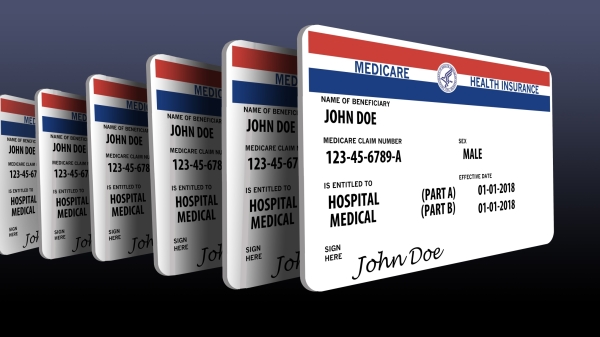|
Getting your Trinity Audio player ready...
|
President Joe Biden’s administration recently announced the first 10 drugs that will be in negotiation for lower drug prices due to the Inflation Reduction Act’s Medicare Drug Price Negotiation program. New data indicates the number of Alabamians who would see lower drug costs as a result.
Following the Inflation Reduction Act becoming law last year, the bill requires the Centers for Medicare and Medicaid Services to negotiate the prices of certain prescription drugs covered under Medicare. Negotiations will occur over the next year and announced by September 1, 2024. But the lower drug prices that will be negotiated would not take effect until 2026.
According to Protect Our Care, a non-profit organization dedicated to affordable health care, approximately 166,000 Alabamians will see lower drug prices as a result of the negotiations. Protect Our Care also has leadership that includes Democratic Party strategists and ties to the former President Barack Obama’s Administration and Biden’s current administration.
The negotiations will lower prices for drugs associated with treating blood clots, diabetes, cancer, Crohn’s disease, heart failure and psoriasis. Protect Our Care’s created a list of the number of people in Alabama that will be directly impacted by each specific drug which includes:
-
“65,000 Alabamans who pay an average of $375 out-of-pocket per year for Eliquis, sold by Bristol Myers Squibb, to treat blood clots.
-
24,000 Alabamans who pay an average of $268 out-of-pocket per year for Jardiance, sold by Boehringer Ingelheim, to treat diabetes.
-
21,000 Alabamans who pay an average of $384 out-of-pocket per year for Xarelto, sold by Johnson & Johnson, to treat blood clots.
-
17,000 Alabamans who pay an average of $257 out-of-pocket per year for Januvia, sold by Merck, to treat diabetes.
-
14,000 Alabamans who pay an average of $207 out-of-pocket per year for Farxiga, sold by AstraZeneca to treat diabetes.
-
12,000 Alabamans who pay an average of $306 out-of-pocket per year for Entresto, sold by Novartis, to treat heart failure.
-
1,000 Alabamans who pay an average of $742 out-of-pocket per year for Enbrel, sold by Amgen, to treat arthritis and psoriasis.
-
Alabamans who pay an average of $4,794 out-of-pocket per year for Imbruvica, sold by AbbVie, to treat blood cancers.
-
Alabamans who pay an average of $1,969 out-of-pocket per year for Stelara, sold by Johnson & Johnson, to treat psoriasis and Crohn’s disease.
- 12,000 Alabamans who pay an average of $116 out-of-pocket per year for Fiasp/NovoLog, sold by Novo Nordisk, to treat diabetes.”
According to a report by the Government Accountability Office in 2021, American consumer retail prescription drugs cost over three to four times more than the prices in several comparison countries. The study examined the prices of over 20 drugs and two of the drugs mentioned include Imbruvica and Xarelto, two of the drugs which will see price negotiations over the next year.
“GAO’s analysis of 2020 data found that, for 20 selected brand-name prescription drugs, estimated U.S. prices paid at the retail level by consumers and other payers (such as insurers) were more than two to four times higher than prices in three selected comparison countries,” said the report.
However, big pharmaceutical companies have already sued to prevent the price negotiations despite profiting billions in overpriced drugs that were likely funded by taxpayer dollars prior to being privatized.
Founder and president of Protect Our Care, Leslie Dach, released a statement discussing the importance of the price negotiations.
“Americans deserve financial security and some peace of mind when they go to sleep at night,” But, too many are forced to choose between being able to afford their medicines or paying for food or housing. Prescription medicines cannot work if people cannot afford to take them, and high drug prices are keeping too many Americans from the health care they need. Patients should not be paying out-of-control prices for medicines they need when all it’s doing is increasing drug company profits and footing the bill for outrageous CEO salaries. President Biden and Democrats in Congress stood up to big drug companies and won a decades-long battle to lower the cost of prescription drugs by giving Medicare the power to negotiate lower prices. The Biden administration is laser-focused on making medications affordable for families and ending the era of drug companies’ unchecked power and greed.”





















































